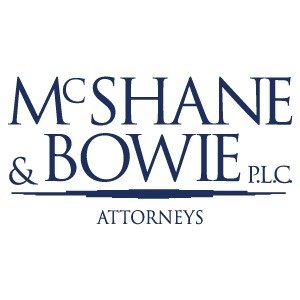Best Corporate Governance Lawyers in Grand Rapids
Share your needs with us, get contacted by law firms.
Free. Takes 2 min.
List of the best lawyers in Grand Rapids, United States
About Corporate Governance Law in Grand Rapids, United States
Corporate governance refers to the system of rules, practices, and processes by which companies are directed and controlled. In Grand Rapids, United States, corporate governance law ensures that corporations operate fairly, ethically, and transparently, serving the interests of shareholders, employees, customers, and the community. Whether a business is a small local partnership or a large public corporation, having sound governance structures in place helps prevent disputes, mitigates risk, and promotes sustainable growth. Corporate governance in Grand Rapids is influenced by both Michigan state law and federal regulations, creating a framework that governs board structures, fiduciary duties, shareholder rights, and regulatory compliance.
Why You May Need a Lawyer
There are several situations where consulting a corporate governance lawyer in Grand Rapids is crucial. Common scenarios include forming a new corporation or LLC, drafting or revising bylaws and operating agreements, resolving disputes among shareholders, partners, or board members, and handling mergers or acquisitions. Legal assistance is also vital during compliance audits, regulatory investigations, or when navigating conflicts of interest. If you are expanding your business, bringing on investors, or facing legal claims related to your company's management, a lawyer can help protect your interests, ensure legal compliance, and represent you in court or negotiations. Early legal guidance can prevent costly mistakes and strengthen your business's foundation.
Local Laws Overview
Corporate governance laws in Grand Rapids are guided by both Michigan state statutes and specific local business ordinances. Key regulations include the Michigan Business Corporation Act, which sets out requirements for corporate formation, director and officer duties, and shareholder rights. Businesses must observe annual meeting and record-keeping obligations. Grand Rapids also imposes local tax registration and licensing requirements for corporations. Publicly traded companies are subject to federal regulations such as the Sarbanes-Oxley Act and Securities and Exchange Commission (SEC) rules. Additionally, anti-fraud laws and conflict of interest policies must be integrated into company bylaws to ensure legal compliance and foster ethical management.
Frequently Asked Questions
What is corporate governance?
Corporate governance encompasses the systems, processes, and rules that guide the direction and control of a company. It involves board structures, management practices, stakeholder rights, and compliance measures.
Who is responsible for corporate governance in a business?
The board of directors, executive officers, and shareholders all play roles in corporate governance. The board oversees management and ensures compliance with laws and ethical standards.
What are fiduciary duties?
Fiduciary duties require board members and officers to act in the best interest of the company and its shareholders, manage assets responsibly, disclose conflicts of interest, and avoid self-dealing.
When should a company update its bylaws?
Bylaws should be reviewed and updated regularly, especially after major business changes such as mergers, regulatory updates, or shifts in company structure to ensure ongoing compliance.
How do shareholders influence corporate governance?
Shareholders can vote on key corporate matters, elect board members, approve major transactions, and raise concerns in annual meetings.
What happens if a director breaches their duties?
A director who violates their fiduciary duties may face legal consequences, including removal from the board, financial liability, and shareholder lawsuits.
How can companies ensure compliance with corporate governance laws?
Establish clear policies, maintain accurate records, conduct periodic audits, provide director training, and seek regular legal counsel to stay updated on evolving regulations.
Is corporate governance different for small businesses?
While some requirements differ, sound governance principles still apply to small businesses, including clear roles, regular meetings, and compliance with state and local laws.
Are there specific corporate governance regulations in Grand Rapids?
Businesses in Grand Rapids must follow Michigan state laws, local business licensing ordinances, and, where applicable, additional municipal requirements for registration and taxation.
How can a corporate governance lawyer help my business?
A lawyer can help draft essential documents, advise on compliance matters, manage disputes, oversee transactions, provide training, and represent your interests in negotiations or court proceedings.
Additional Resources
- Michigan Department of Licensing and Regulatory Affairs (LARA) for business registration and regulatory guidance - Grand Rapids City Clerk’s Office for local business permit information - U.S. Securities and Exchange Commission for public company regulations - Small Business Administration Michigan District Office for resources on compliance and management - West Michigan Chapter of the Association of Corporate Counsel for networking and educational events
Next Steps
If you require legal advice or support in the field of corporate governance, start by assessing your immediate needs, such as updating policies, resolving disputes, or ensuring regulatory compliance. Gather all relevant documents including your company’s articles of incorporation, bylaws, and minutes from board meetings. Consult with a qualified corporate governance attorney experienced with Michigan and Grand Rapids business law. Many lawyers offer initial consultations to help you understand your options. Staying proactive with legal guidance can safeguard your business, foster ethical operations, and position your organization for long-term success.
Lawzana helps you find the best lawyers and law firms in Grand Rapids through a curated and pre-screened list of qualified legal professionals. Our platform offers rankings and detailed profiles of attorneys and law firms, allowing you to compare based on practice areas, including Corporate Governance, experience, and client feedback.
Each profile includes a description of the firm's areas of practice, client reviews, team members and partners, year of establishment, spoken languages, office locations, contact information, social media presence, and any published articles or resources. Most firms on our platform speak English and are experienced in both local and international legal matters.
Get a quote from top-rated law firms in Grand Rapids, United States — quickly, securely, and without unnecessary hassle.
Disclaimer:
The information provided on this page is for general informational purposes only and does not constitute legal advice. While we strive to ensure the accuracy and relevance of the content, legal information may change over time, and interpretations of the law can vary. You should always consult with a qualified legal professional for advice specific to your situation.
We disclaim all liability for actions taken or not taken based on the content of this page. If you believe any information is incorrect or outdated, please contact us, and we will review and update it where appropriate.











